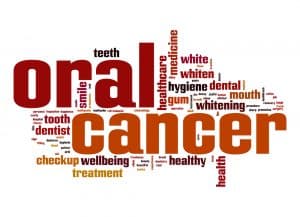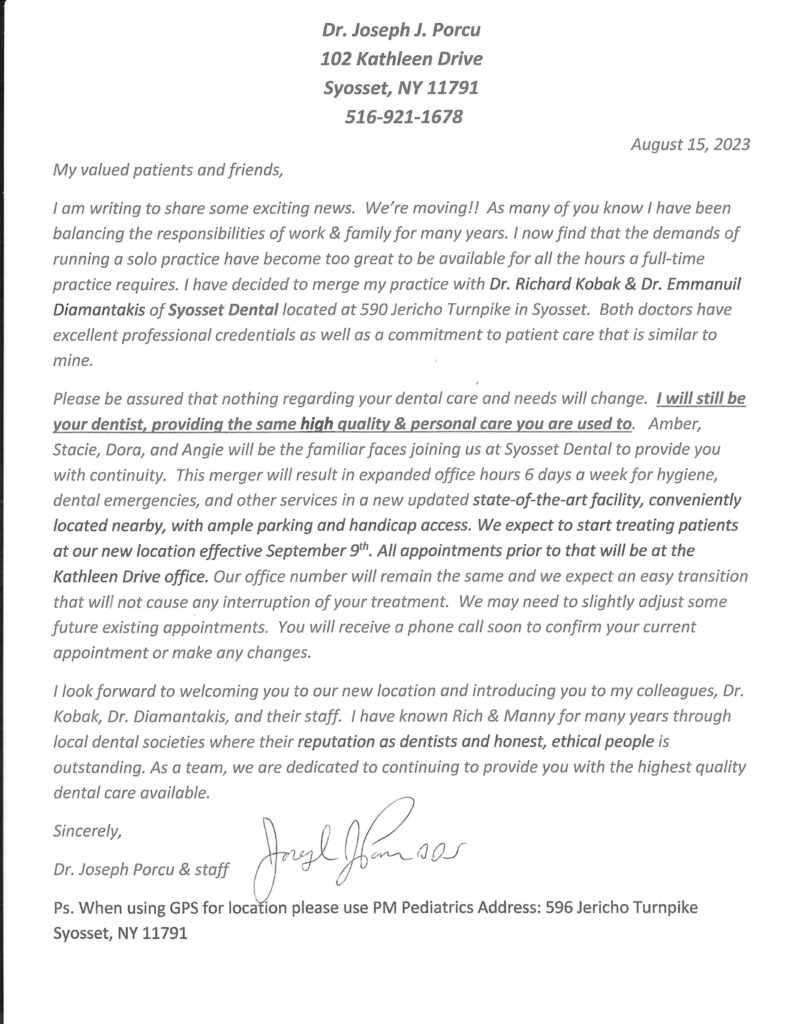 One of modern dentistry’s greatest achievements is giving patients back their confidence and quality of life with custom, lifelike dental prostheses. Even more important, however, is the ability to prevent tooth loss to begin with by understanding the common causes behind it and how you can avoid them. For instance, in addition to commonly known factors, like dental hygiene, there are also nutritional and functional factors that could affect your risks of experiencing tooth loss. (more…)
One of modern dentistry’s greatest achievements is giving patients back their confidence and quality of life with custom, lifelike dental prostheses. Even more important, however, is the ability to prevent tooth loss to begin with by understanding the common causes behind it and how you can avoid them. For instance, in addition to commonly known factors, like dental hygiene, there are also nutritional and functional factors that could affect your risks of experiencing tooth loss. (more…)
Busting Myths About Root Canal Therapy
 Tooth decay is a progressive disease, and how you treat it depends on how much it’s progressed by the time you detect it. As one of the more involved forms of tooth decay treatment, root canal therapy is often the last resort to save your tooth from the destruction of severe tooth decay. However, the procedure often has an unfortunate and unfairly negative reputation, prompting many patients to prolong treatment and place their smiles at further risk. Today, we bust some common myths about restorative root canal treatment and why the procedure shouldn’t be postponed once it becomes necessary. (more…)
Tooth decay is a progressive disease, and how you treat it depends on how much it’s progressed by the time you detect it. As one of the more involved forms of tooth decay treatment, root canal therapy is often the last resort to save your tooth from the destruction of severe tooth decay. However, the procedure often has an unfortunate and unfairly negative reputation, prompting many patients to prolong treatment and place their smiles at further risk. Today, we bust some common myths about restorative root canal treatment and why the procedure shouldn’t be postponed once it becomes necessary. (more…)
Feeling Sleep Deprived? Ask About Sleep Apnea
 These days, there’s no shortage of things that can interrupt a good night’s sleep. For many people, though, such interruptions may not even be noticeable. For instance, patients with obstructive sleep apnea (OSA) can lose hours of valuable sleep without realizing it, leading to symptoms of sleep deprivation that may seem unexplainable. If you believe you’re sleeping soundly at night, but still feel sleep deprived, then find out if sleep apnea is the reason why. In many cases, your dentist may be able to help you treat it with a comfortable, custom-designed oral appliance. (more…)
These days, there’s no shortage of things that can interrupt a good night’s sleep. For many people, though, such interruptions may not even be noticeable. For instance, patients with obstructive sleep apnea (OSA) can lose hours of valuable sleep without realizing it, leading to symptoms of sleep deprivation that may seem unexplainable. If you believe you’re sleeping soundly at night, but still feel sleep deprived, then find out if sleep apnea is the reason why. In many cases, your dentist may be able to help you treat it with a comfortable, custom-designed oral appliance. (more…)
When Teeth Whitening Won’t Work
 Professional teeth whitening is one of the most popular cosmetic dental treatments, but in some cases, it may not be enough to erase particularly stubborn or intrinsic (internal) tooth discoloration. Before undergoing treatment, your dentist will carefully examine your teeth to determine the nature and severity of your teeth stains. If teeth whitening won’t work for your specific situation, then we can recommend a more appropriate option to improve your smile, such as cosmetic tooth bonding or porcelain veneers. (more…)
Professional teeth whitening is one of the most popular cosmetic dental treatments, but in some cases, it may not be enough to erase particularly stubborn or intrinsic (internal) tooth discoloration. Before undergoing treatment, your dentist will carefully examine your teeth to determine the nature and severity of your teeth stains. If teeth whitening won’t work for your specific situation, then we can recommend a more appropriate option to improve your smile, such as cosmetic tooth bonding or porcelain veneers. (more…)
A Brief Look at Modern Tooth Fillings
 Tooth fillings are among the most widely-recognized dental treatments, and have been for centuries. However, today’s tooth fillings look, act, and protect teeth much better than they used to, and they can serve the dual purposes of restoring a cavity-stricken tooth while improving its overall appearance. While most people may have to deal with a cavity at least once in their lives, the good news is that modern tooth fillings can help them do so effectively, and with the utmost confidence. (more…)
Tooth fillings are among the most widely-recognized dental treatments, and have been for centuries. However, today’s tooth fillings look, act, and protect teeth much better than they used to, and they can serve the dual purposes of restoring a cavity-stricken tooth while improving its overall appearance. While most people may have to deal with a cavity at least once in their lives, the good news is that modern tooth fillings can help them do so effectively, and with the utmost confidence. (more…)
How Dental Crowns Prevent Further Dental Trouble
 If your tooth cracks or fractures, or if it develops a cavity and needs a filling or root canal treatment, then you may need a dental crown to restore it. A dental crown is a manmade replica of the top portion of your tooth, or the natural crown, and caps the tooth to protect it when it’s damaged or treated for disease. While they excel at restoring the appearance and function of your teeth, the most important benefit for many patients is how much trouble dental crowns can prevent them from experiencing in the future. (more…)
If your tooth cracks or fractures, or if it develops a cavity and needs a filling or root canal treatment, then you may need a dental crown to restore it. A dental crown is a manmade replica of the top portion of your tooth, or the natural crown, and caps the tooth to protect it when it’s damaged or treated for disease. While they excel at restoring the appearance and function of your teeth, the most important benefit for many patients is how much trouble dental crowns can prevent them from experiencing in the future. (more…)
What Does “Oral-Systemic Health” Mean?
 The confidence you feel when your smile’s appearance is flawless is only one reason why excellent dental health should be a priority. Other reasons include avoiding issues like severe toothaches, destructive cavities, progressive gum disease, and in many cases, increased risks of chronic systemic health conditions. Known as oral-systemic health, the connection between your smile and the rest of your body is a significant one, especially since it can provide a pathway for dental diseases to affect other systems in your body. (more…)
The confidence you feel when your smile’s appearance is flawless is only one reason why excellent dental health should be a priority. Other reasons include avoiding issues like severe toothaches, destructive cavities, progressive gum disease, and in many cases, increased risks of chronic systemic health conditions. Known as oral-systemic health, the connection between your smile and the rest of your body is a significant one, especially since it can provide a pathway for dental diseases to affect other systems in your body. (more…)
More than Teeth Cleaning at Your Dental Checkup
 When you think of regular dental care, your first thought may be of your dentist or hygienist cheerfully cleaning and polishing your teeth. However, that’s only one half of a complete checkup and cleaning appointment. The other half (your checkup) involves a detailed inspection of your teeth, gums, and oral tissues to determine if any issues exist. As the cornerstone of excellent dental health, your routine dental visits are about more than just cleaning your teeth; it’s about preserving your whole smile by optimizing your dental health care. (more…)
When you think of regular dental care, your first thought may be of your dentist or hygienist cheerfully cleaning and polishing your teeth. However, that’s only one half of a complete checkup and cleaning appointment. The other half (your checkup) involves a detailed inspection of your teeth, gums, and oral tissues to determine if any issues exist. As the cornerstone of excellent dental health, your routine dental visits are about more than just cleaning your teeth; it’s about preserving your whole smile by optimizing your dental health care. (more…)
Can Your Dentist Help You Fight Oral Cancer?
 Your dentist does more than just help you prevent and treat common dental issues, like cavities and gum disease. Through regular dental examinations, he can also help you keep a close eye on other oral health developments, including increased risks of oral cancer. During every checkup and cleaning appointment, your dentist will perform a comprehensive screening to detect and fight oral cancer early. These screenings can significantly tip the balance in your favor if oral cancer develops. (more…)
Your dentist does more than just help you prevent and treat common dental issues, like cavities and gum disease. Through regular dental examinations, he can also help you keep a close eye on other oral health developments, including increased risks of oral cancer. During every checkup and cleaning appointment, your dentist will perform a comprehensive screening to detect and fight oral cancer early. These screenings can significantly tip the balance in your favor if oral cancer develops. (more…)
Diagnosing Your Dental Emergency
 Dental emergencies can sometimes be scary. By their very nature, emergencies occur without warning, so even excellent dental health may not prevent an accident from damaging your teeth. They cannot heal themselves like other parts of your body (such as your bones), so any damage they incur must be addressed quickly to prevent further damage or infection. To save a compromised tooth, your dentist will first have to diagnose your dental emergency. Then, he can prescribe an appropriate treatment plan to restore the damage and alleviate your discomfort. (more…)
Dental emergencies can sometimes be scary. By their very nature, emergencies occur without warning, so even excellent dental health may not prevent an accident from damaging your teeth. They cannot heal themselves like other parts of your body (such as your bones), so any damage they incur must be addressed quickly to prevent further damage or infection. To save a compromised tooth, your dentist will first have to diagnose your dental emergency. Then, he can prescribe an appropriate treatment plan to restore the damage and alleviate your discomfort. (more…)











